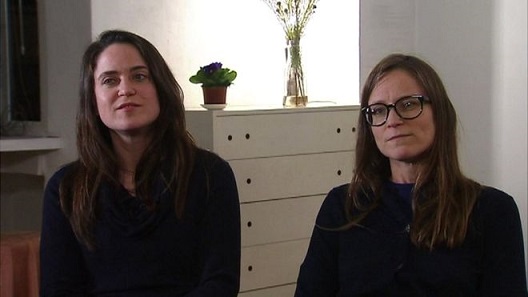
A court in Belgium has acquitted three doctors accused of unlawfully poisoning a woman whose life they helped to end.
Tine Nys, 38, died surrounded by her family on 27 April 2010.
In the landmark case, her sisters and prosecutors had argued she wanted to die because of a failed relationship, short of the “incurable disorder” required by Belgium’s euthanasia law.
But after hours of deliberations the jury in Ghent cleared the doctors, prompting applause in the courtroom.
Those acquitted early on Friday were Joris Van Hove, the doctor who administered the lethal injection, Nys’s former doctor Frank D. and psychiatrist Lieve Thienpont.
The court ruled that in the case of Joris Van Hove, “there was reasonable doubt… and if there is reasonable doubt it is to the benefit of the accused,” Flemish media reported.
The doctor was acquitted because he was not aware that euthanasia would be carried out on the day, while the psychiatrist said she met all the conditions required of her.
Euthanasia and assisted suicide were made legal under strict conditions in Belgium in 2002.
Since then doctors in the country have faced legal proceedings before, but none of the case until now made it to the courtroom until now.
What is Belgium’s euthanasia law?
A patient must be legally competent and conscious at the time of seeking to end their life. The request must be voluntary, well considered and repeated.
The disease must cause constant and unbearable physical or mental suffering, resulting from “a serious and incurable disorder caused by illness or accident”, according to Belgium’s public health service.
Where a patient is not expected to die soon, the doctor must consult a second physician and allow at least a month from the request before euthanasia takes place. Physicians are free to perform euthanasia if the conditions are met or refuse if they do not wish to.
Last October, renowned 40-year-old Belgian Paralympian Marieke Vervoort ended her life 11 years after signing papers to allow a doctor to end her life. She had an incurable degenerative muscle disease that caused her constant pain, seizures and paralysis in her legs. She won gold and silver at the London 2012 Paralympics.
Tine Nys’s sisters have emphasised they consider euthanasia necessary in some cases but want the law made clearer.
Since 2014, Belgium has allowed minors to be helped to die as well as adults, if they are terminally ill and in great pain and if they have parental consent.
According to Belgian media, there were 2,357 cases of euthanasia in 2018, equivalent to more than six a day. The majority involved people aged over 60 and took place in Belgium’s Flemish north.
Source: bbc.co.uk






Be the first to comment